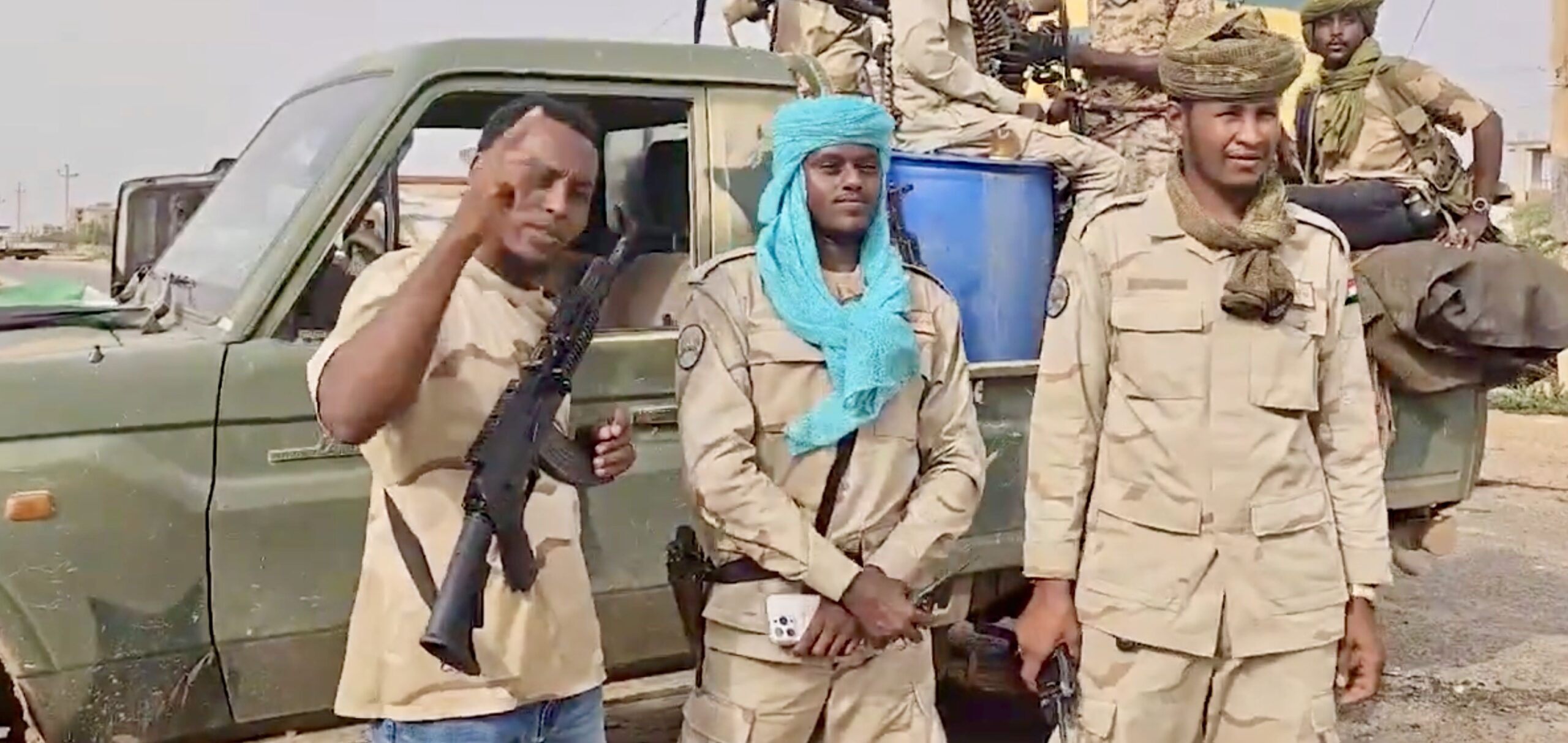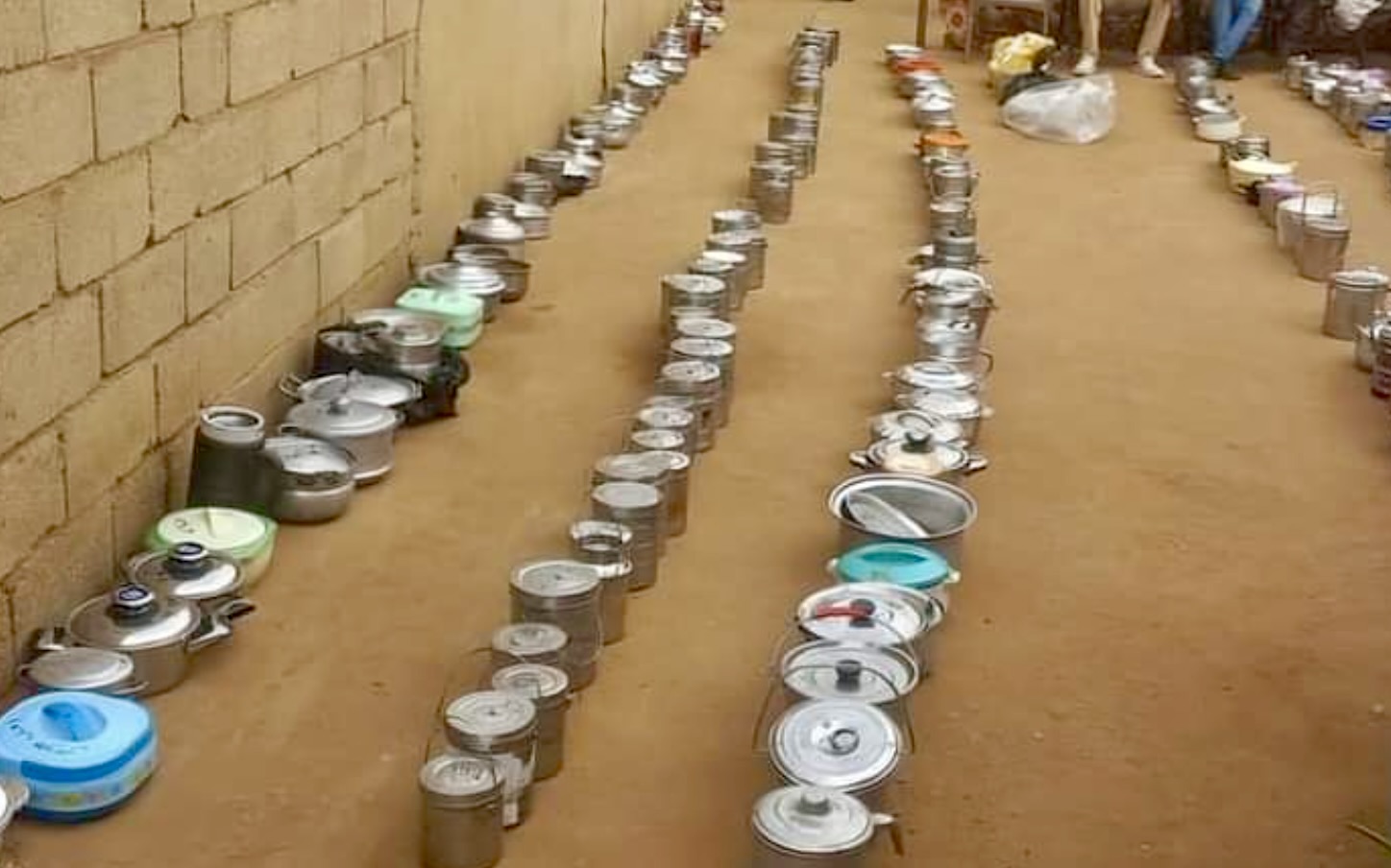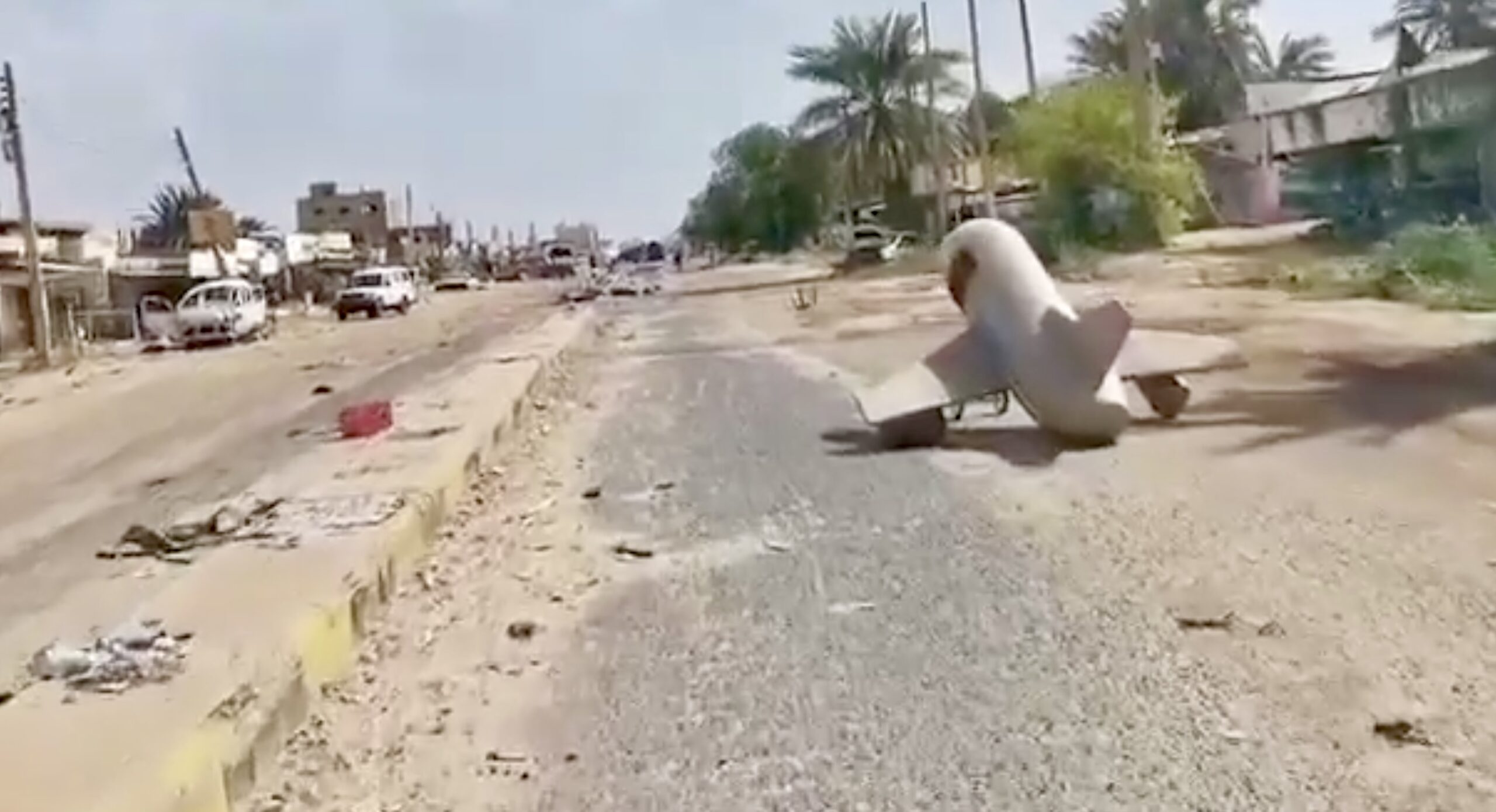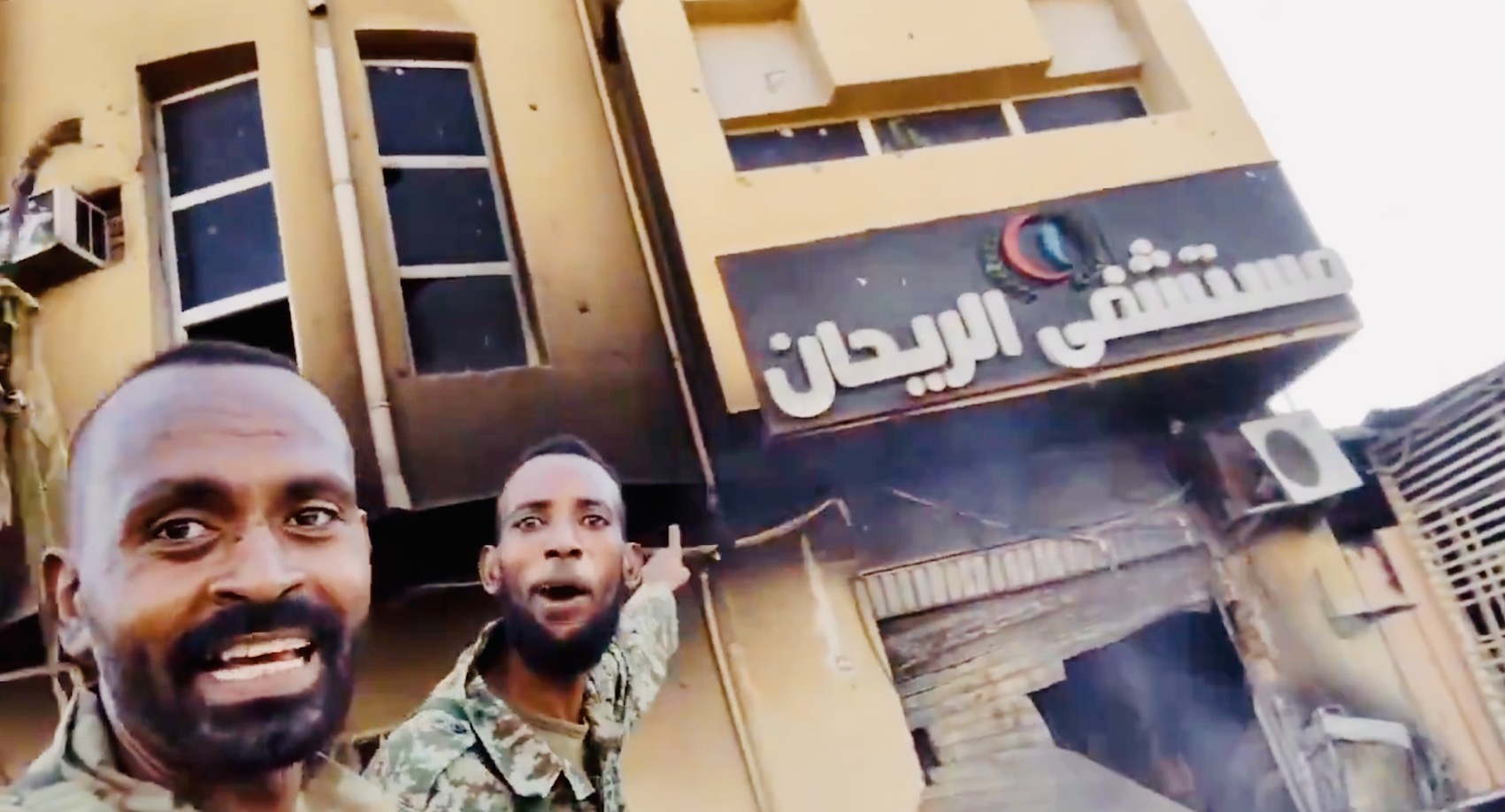Isolated and dying: the plight of Bahri residents
27 September 2024
Between 10 and 15 people die daily in Bahri as the conflict in Sudan continues, says a member of the Bahri Emergency Response Room (ERR), a Sudanese network of volunteers who help the war-affected.
Over the past two months, volunteers from the Bahri Emergency Response Room documented 49 deaths from hunger-related causes in different areas of Bahri.
“Bahri is approaching famine,” says humanitarian worker Mohamed Nader. “About 300,000 people in Bahri are facing shortages of food, water, and healthcare,” he added. “By the end of the year, thousands will not survive if the situation continues at this pace.”
Bahri is approaching famine. By the end of the year, thousands will not survive if the situation continues at this pace,
— Mohamed Nader, Humanitarian worker
For 17 months now, the national army under the Sudan Armed Forces and the paramilitary Rapid Support Forces (RSF) have fought a protracted war within the country, trapping many civilians in the capital, Khartoum.
RSF and affiliated militias wreak havoc on Bahri, the northern region of the capital city, looting the ERR community kitchens and medical supply centres under the volunteers’ supervision. This fighting takes place while the World Food Programme (WFP) declares Sudan “the largest hunger crisis in the world,” with nearly 26 million people—54% of the country’s population—“struggling from severe hunger.”
In mid August, combat operations returned in Bahri near the army’s Hattab operational base. The military repelled an RSF attack that seized the main market near the base, killing at least 15 civilians in the process while hundreds were displaced to neighbouring areas.
Continued shelling from both sides has induced half of the residents of Bahri to flee their homes due to looting attacks by the RSF, says humanitarian worker Israa Hammad. “The RSF have not engaged in direct battles against the army in Khartoum recently, because the armed forces prefer to stay inside their headquarters and avoid deployment to the neighbourhoods as they fear for their military garrisons to fall under the RSF’s control.”

The RSF control 90% of Bahri, while the army only controls its bases in Al-Kadro, Hattab, and the Signal Corps. The RSF roam the city, while the army has restricted movement on land routes north towards River Nile State and west towards Omdurman.
Sudan’s War Museum, located near the Blue Nile River and once the pride of the national army, is now a watchtower for the RSF to monitor the bridge linking Khartoum North and Khartoum near the army command bases.
The RSF targets Khartoum’s sister city, Omdurman, and the army shells neighbourhoods such as Shambat, Al-Shaabiya, and Al-Mazad in Khartoum North, according to several volunteers from the Emergency Response Rooms.
Both sides of the conflict are engaged in airstrikes and shelling.
Trapped and hungry within the war zone, residents of Bahri’s old neighbourhoods, especially the ones above mentioned, host the largest percentage of residents who have not left the city since the outbreak of fighting in mid-April 2023.
“The situation is very difficult in terms of insecurity, killings, food scarcity, and plundering,” says a member of the Bahri ERRs who cannot be named due to security concerns. “The situation is extremely tough. There is organised looting of the community kitchens and citizens’ property, and, at the same time, residents of Old Bahri are being bombed by the army from Omdurman.”
Tagwa Ziada returns to her family home to see what remains (Ayin)
Targeted by all sides
If civilians speak out about the RSF looting food from the community kitchens and medicines from the health care centres, all critical and in short supply, the RSF will target them, the same source said. The RSF have systematically looted the Shambat neighbourhood of Bahri, the Shambat Resistance Committee Alliance reported last month. Some of the community kitchens in Shambat, which support 1,400 residents, were forced to shutter, the statement said. Gunmen have also looted flour supplies for a bakery and raided the west Shambat community kitchen for the third time, the Sudanese Communist Party – Shambat Branch said in a statement in September.
Shambat resident and lawyer Moez Hadra said that the area fell under RSF’s control at the start of the war. The people were coping with the situation by relying on the 22 community kitchens in the area, he added, but face the daily threat of RSF looting, even demanding money transfers. “Unfortunately, the [RSF] leaders do not play any role in preventing these violations and protecting civilians, despite what the RSF Commander said,” he added.
Other times, soldiers from the national army or allied militias detain and beat civilians, accusing them of association with the Rapid Support Forces. According to the warring parties, he added, working and residing in Bahri has become a criminal offence, even when civilians have no choice but to remain.
Last month, the army intensified its bombing operations in Bahri; two EERs in Bahri confirmed that more than 150 shells and mortar shells fell on the city, leaving 19 people dead and more than 52 injured. According to local medical volunteers, those wounded often succumb to their injuries due to the lack of access to health facilities and medical supplies. Nader says Bahri Hospital is now closed since the RSF were unable to manage the facilities for the public and only treat their own.

Trapped, isolated, hungry
After the fighting destroyed Shambat Bridge late last year, buses cannot travel from Khartoum North to Omdurman, where the army is in charge of the relatively safe Karari locality. The only working bridge, Halfaya Bridge, is impossible to cross due to RSF check points at each end of the bridge.
The fighting in Bahri has destroyed key infrastructure such as the power and water stations, effectively cutting off all power and water to the city. Thieves have looted the electricity transformers sand wires.
Bahri is effectively cut off from the world.
“I left behind a completely burned city. There was no longer any reason to stay—no water, no electricity, no transportation,” said Imaan Mukhtar, a mother of two who fled her home in Bahri’s Al-Sahabi neighbourhood. “Some people left their homes, walked to the riverbank, and then boarded boats to Omdurman.”
The war has curtailed all means civilians used to have to find a meal. The UN reports that grain production fell by 40% between 2022-2023. The International Monetary Fund claims half Sudan’s population is now unemployed. The banking system has collapsed, making it impossible to withdraw whatever reserves civilians may have saved. All this, while prices for basic commodities such as lentils and rice have risen by 400 – 600 percent across the country.
Both warring parties prevent the movement of commercial convoys, and, in some cases, loot any commodities that could reach the people. Meanwhile, the RSF in Bahri trades goods in the eastern Butana region. “These forces control the commercial convoys to earn billions of pounds,” Hammand told Ayin.

Political tools
Nader believes placing civilians at risk is part of the military strategy of both generals —whether referring to Mohamed Hamdan Dagalo (popularly known as “Hemedti”) from the RSF, or Abdelfattah al-Burhan from Sudan’s army. By targeting the civilians, both warring parties are able to control the populace. Both sides also make political gains by making small compromises on the ground, Nader says, such as allowing aid access or a ceasefire.
“But these should not be considered compromises, as they are rights guaranteed under international humanitarian law,” he added.
Despite the challenges, the Bahri Emergency Response Room and volunteers continue to distribute food from community kitchens to civilians in four sectors in Bahri, Nader told Ayin. “These food supplies can barely sustain 100,000 people. The war needs to stop for citizens to be able to return to their daily lives.”


